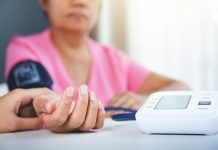
In a recent study from the University of Vigo, along with other institutions, a new and potentially life-saving strategy for managing high blood pressure has been uncovered.
This research suggests that people with high blood pressure who take all their medication at bedtime might not only control their blood pressure more effectively but also significantly lower their risk of heart-related diseases and death compared to those who take their medication in the morning.
The study stands out as the largest to explore how the timing of blood pressure medication affects the risk of developing heart problems.
It involved 19,084 patients who were divided into two groups: one took their medication upon waking, and the other at bedtime.
Over an impressive average follow-up period of more than six years, the health outcomes of these patients were closely monitored. Their ambulatory blood pressure was measured over 48 hours at least once a year, ensuring accurate and comprehensive data collection.
The findings were remarkable. Those who took their medication at bedtime had a 45% lower risk of experiencing or dying from heart attacks, strokes, heart failure, or needing a procedure to clear blocked arteries, compared to those who took their medication in the morning.
Specifically, the study found a 66% reduction in the risk of death from heart or blood vessel problems, a 44% reduction in the risk of heart attacks, a 40% reduction in the need for coronary revascularization (procedures to unblock arteries), a 42% reduction in the risk of heart failure, and a 49% reduction in the risk of stroke among the bedtime medication group.
This research challenges current guidelines on hypertension treatment, which do not specify an optimal time for medication intake. Traditionally, morning intake has been recommended by many physicians with the aim of reducing morning blood pressure levels.
However, the findings from the Hygia Project, which this study is a part of, suggest that this approach may be misguided.
The project’s previous work has shown that the average systolic blood pressure during sleep is a more crucial and independent indicator of cardiovascular disease risk than blood pressure measurements taken while awake or during doctor visits.
Moreover, there is no evidence to support that treating hypertension in the morning is more effective in reducing the risk of cardiovascular disease.
This study, conducted by Ramón C. Hermida and colleagues and published in the European Heart Journal, could potentially lead to a significant shift in how hypertension is treated worldwide.
It highlights the importance of timing in medication intake, suggesting that a simple change in routine could have profound effects on public health.
If you care about high blood pressure, please read studies that early time-restricted eating could help improve blood pressure, and natural coconut sugar could help reduce blood pressure and artery stiffness.
For more information about blood pressure, please see recent studies about added sugar in your diet linked to higher blood pressure, and results showing vitamin D could improve blood pressure in people with diabetes.
Copyright © 2024 Knowridge Science Report. All rights reserved.



